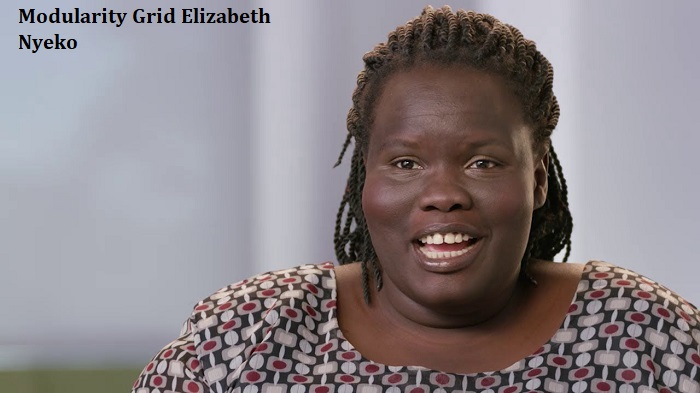Modularity Grid- Overview, News & Competitors

A firm in London named Modularity Grid specialises in AI tools that make running mini-grids more efficient. The group has created a platform for energy technology that combines cloud computing resources with artificial intelligence to help mini-grid operators better monitor and foresee individual energy consumption. Their method links the many elements of a mini-grid and gathers massive amounts of real-time data, such as the amount of electricity produced and consumed. In the end, Modularity Grid is spreading the adoption and transition to an electrified society by lowering the cost of electricity from renewable mini-grids through improved efficiency and more knowledge. Innovate UK has awarded Modularity Grid a £1.5 million grant to test their software on mini-grids, and they have also signed two long-term contracts with dairy farms.
As the CEO of the London-based startup Modularity Grid, Nyeko develops technologies to enhance the performance of mini-grids, which are localised systems for the generation, transmission, and distribution of electricity that provide power to residences and businesses in places where expanding national grids is prohibitively expensive. Mini-grids do, however, have some drawbacks. The electrical demand of individual consumers is exceedingly difficult to track, which generally results in excess power output, wasteful fuel consumption, and high electricity pricing, as Nyeko discovered at Mandulis Energy, a firm she cofounded that developed a biomass-fired mini-grid in northern Uganda.
At Modularity Grid, Nyeko created an intelligent cloud-based platform that helps mini-grid operators better track and forecast individual use. The platform then distributes any extra electricity to designated customers that require steady power, or “anchor loads,” by rerouting it to them. The community rice mill, which also provides the rice husks required to fuel the mini-grid itself, is one of the anchor loads at the Mandulis site in Uganda where Nyeko is testing her Modularity Grid concept. “We can make mini-grids viable in a low-income setting if we can give only the quantity of electricity to people that they need, and redirect the rest to something that creates value for a rural community,” adds Nyeko.
Nyeko, who was born in northern Uganda but left there as a child to escape the civil war, is now pitching her solution to other mini-grid providers and is getting ready to start working with Total and Vinci Energies on further electricity projects around Africa. She hopes that eventually her solution will also contribute to the efficiency of national grids, both in Africa and elsewhere.
Northern Uganda is where Elizabeth Nyeko was born. She departed her nation as a child due to the civil war. She pursued her education at Oxford University. She began her career working in banking investments at Lehman Brothers and Goldman Sachs. At the Imperial College of London and the University of Oxford, she has also worked in academic research.
Elizabeth is a Ridiculous Person. Unreasonable Impact UK & Europe 2022 included Elizabeth (Feb – Apr).
In order to create the next generation of zero carbon electrical power systems for terrestrial and aircraft applications, Elizabeth Nyeko founded and serves as CEO of Modularity Grid. Nyeko established a biomass-powered mini-grid in Uganda in 2012 while getting a PhD in clinical medicine at the University of Oxford with her brother Peter and their business, Mandulis Energy. As Nyeko discovered at Mandulis Energy, it is highly challenging to predict each customer’s specific electrical needs, which frequently results in excessive power production, inefficient fuel consumption, and high electricity pricing.
As the CEO of Modularity Grid, Nyeko develops technology to enhance the functionality of mini-grids, which are localised systems for producing and distributing electricity on a small scale and powering residences and businesses in places where extending national grids is prohibitively expensive. In the end, Nyeko is confident that her idea will contribute to the improvement of national grids, both within and outside of Africa.
Company: Modularity Grid
Founder: Elizabeth Nyeko
Website: https://www.modularitygrid. com/
Business: enabling the next generation of low carbon energy systems for aerospace and terrestrial applications.
Mandulis Energy, a business that constructed biomass electric lines in northern Uganda, was formed by Nyeko. She observed that the demand for frequent customers was unpredictable at the moment. Energy was produced in excess, fuel was used inefficiently, and prices rose as a result of this problem.
Careers
Modularity Grid, a smart platform created by Nyeko, operates on the cloud. Operators may monitor and forecast each customer’s electricity use using this platform. If there is a surplus of electricity, it is diverted to consumers who need continual energy.
The Mandulis network in Uganda is being used to test out this technique. The town’s rice mill is the one that uses the most energy here. Electric microgrids will be practical for low-resource situations if we can provide the precise amount of electricity to those who need it and divert the remainder to something that adds value in the rural community, according to Nyeko.








